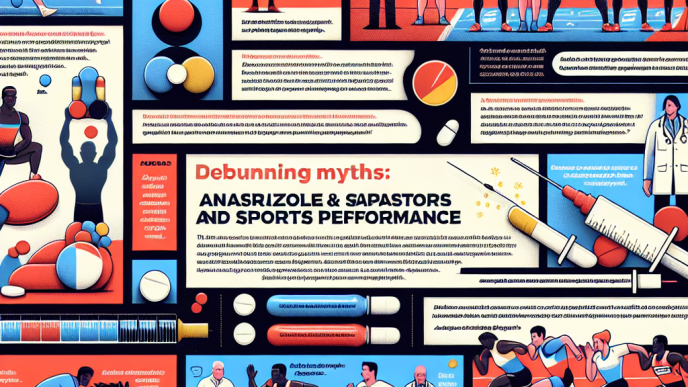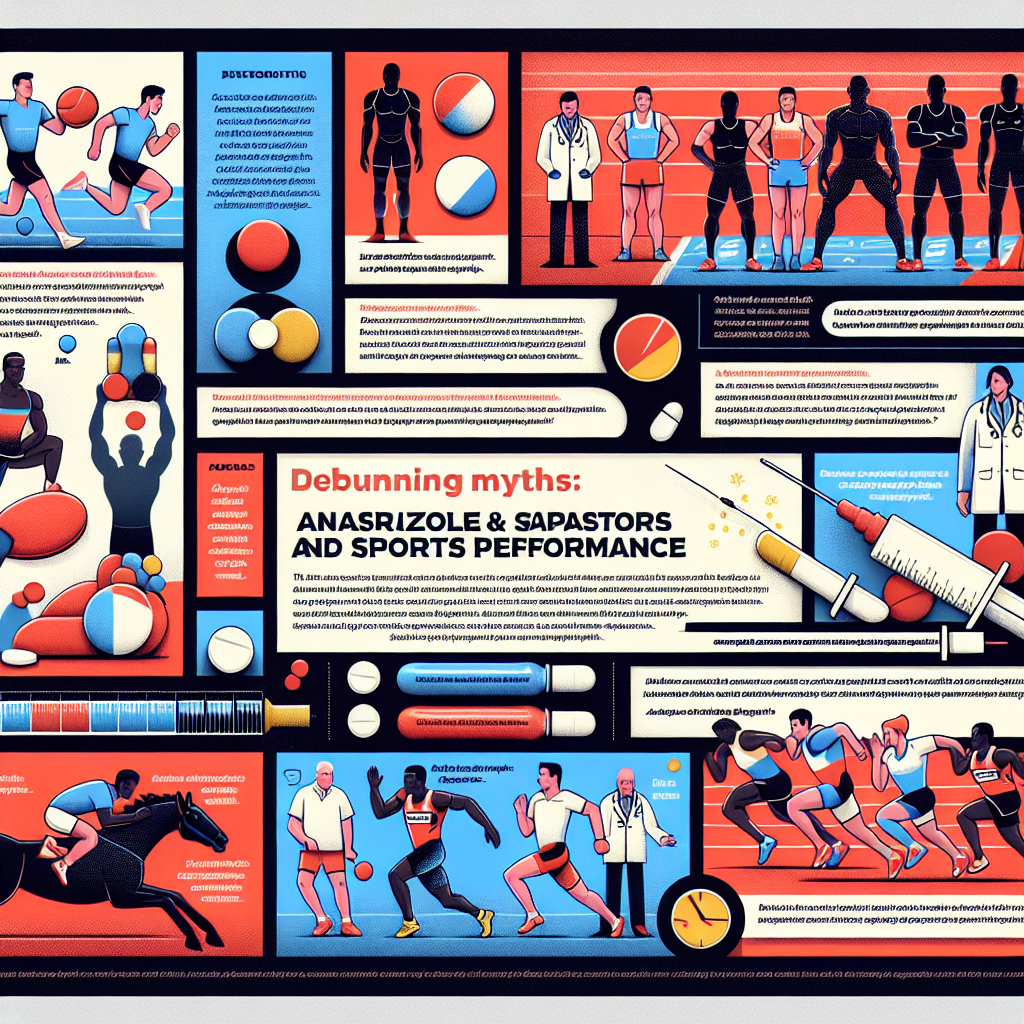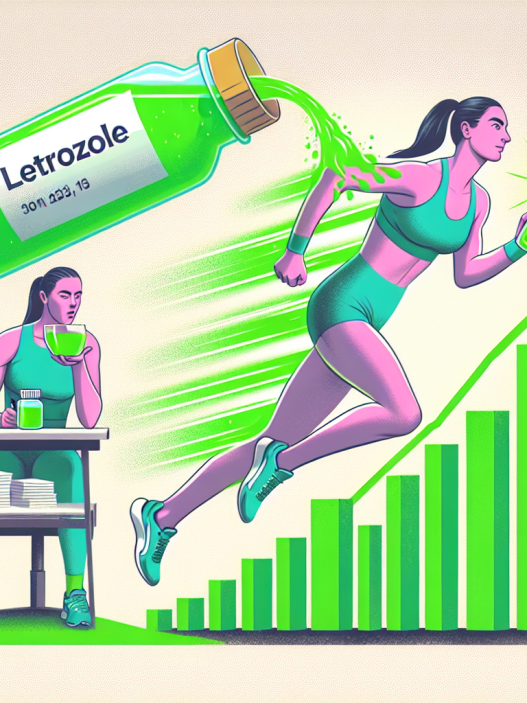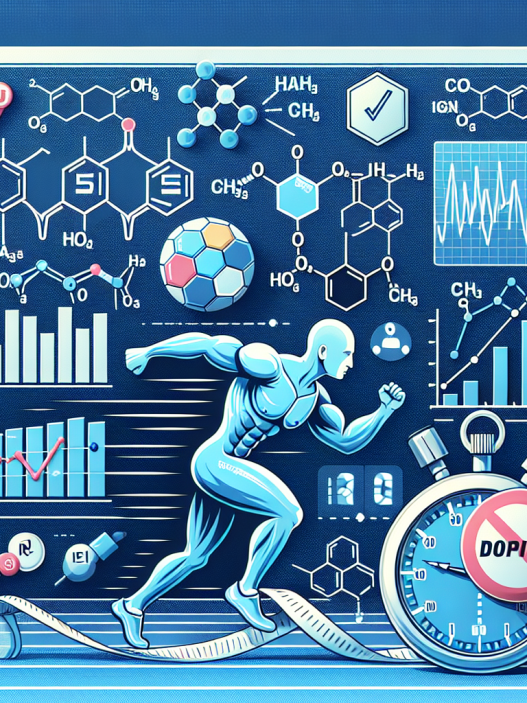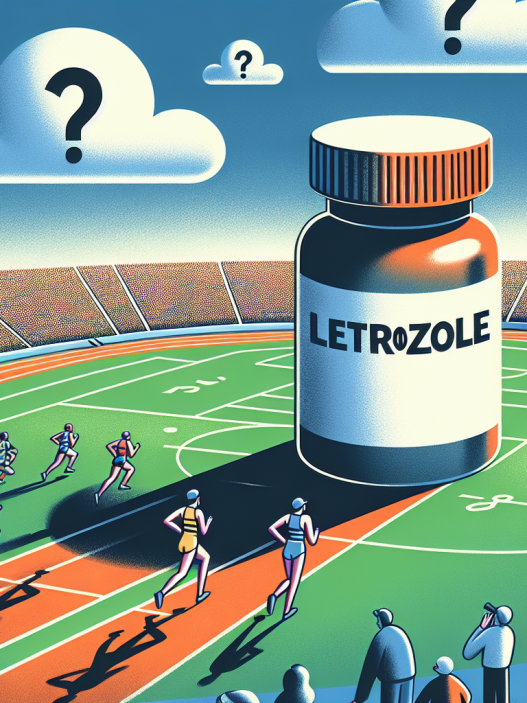-
Table of Contents
- Debunking Myths: Anastrozole and Sports Performance
- The Role of Anastrozole in Sports
- Myth #1: Anastrozole Increases Testosterone Levels
- Myth #2: Anastrozole Improves Sports Performance
- The Dangers of Anastrozole Use in Sports
- The Importance of Evidence-Based Information
- Conclusion
- Expert Comments
- References
Debunking Myths: Anastrozole and Sports Performance
When it comes to sports performance, athletes are always looking for ways to gain an edge over their competition. This often leads to the use of performance-enhancing drugs, which can have serious consequences on an athlete’s health and career. One drug that has been surrounded by myths and misconceptions in the sports world is anastrozole. In this article, we will debunk these myths and provide evidence-based information on the effects of anastrozole on sports performance.
The Role of Anastrozole in Sports
Anastrozole is a medication commonly used in the treatment of breast cancer. It belongs to a class of drugs known as aromatase inhibitors, which work by blocking the production of estrogen in the body. This is important in breast cancer treatment as estrogen can promote the growth of cancer cells. However, some athletes have turned to anastrozole as a means of enhancing their sports performance.
One of the main reasons for this is the belief that anastrozole can increase testosterone levels in the body. Testosterone is a hormone that plays a crucial role in muscle growth and strength, making it a desirable substance for athletes. However, the use of anastrozole for this purpose is not supported by scientific evidence.
Myth #1: Anastrozole Increases Testosterone Levels
There is a common misconception that anastrozole can increase testosterone levels in the body. This belief stems from the fact that anastrozole can lower estrogen levels, which in turn can lead to an increase in testosterone. However, this increase is not significant enough to have any noticeable effect on sports performance.
In fact, a study published in the Journal of Clinical Endocrinology and Metabolism found that anastrozole had no significant effect on testosterone levels in healthy men (Mauras et al. 2000). This is because the body has a feedback mechanism that regulates testosterone production, and any decrease in estrogen levels caused by anastrozole is quickly compensated for by an increase in testosterone production.
Furthermore, anastrozole has been shown to have no effect on testosterone levels in women, who naturally have lower levels of testosterone than men (Geisler et al. 2002). This further debunks the myth that anastrozole can increase testosterone levels in the body.
Myth #2: Anastrozole Improves Sports Performance
Another common myth surrounding anastrozole is that it can improve sports performance. This belief is based on the idea that anastrozole can increase testosterone levels, which in turn can lead to an increase in muscle mass and strength. However, as we have already established, anastrozole does not have a significant effect on testosterone levels.
Moreover, there is no scientific evidence to support the claim that anastrozole can enhance sports performance. In fact, a study published in the Journal of Clinical Endocrinology and Metabolism found that anastrozole had no effect on muscle strength or endurance in healthy men (Mauras et al. 2000). This further debunks the myth that anastrozole can improve sports performance.
The Dangers of Anastrozole Use in Sports
Despite the lack of evidence supporting the use of anastrozole for sports performance, some athletes continue to use it in hopes of gaining an advantage. This can have serious consequences on their health and career.
One of the main dangers of anastrozole use in sports is the potential for adverse side effects. Anastrozole can cause a range of side effects, including hot flashes, joint pain, and fatigue. These side effects can have a negative impact on an athlete’s performance and overall well-being.
Moreover, the use of anastrozole in sports is considered doping and is prohibited by most sports organizations. Athletes who are caught using anastrozole can face serious consequences, including suspension and loss of medals or titles. This not only tarnishes their reputation but also puts their career at risk.
The Importance of Evidence-Based Information
It is crucial for athletes to have access to accurate and evidence-based information when it comes to performance-enhancing drugs. Myths and misconceptions can lead to the use of substances that have no real benefit and can even be harmful to an athlete’s health and career.
As researchers and experts in the field of sports pharmacology, it is our responsibility to provide athletes with reliable information on the effects of drugs like anastrozole. By debunking myths and presenting evidence-based data, we can help athletes make informed decisions about their health and performance.
Conclusion
In conclusion, anastrozole does not have a significant effect on testosterone levels or sports performance. The use of anastrozole for these purposes is not supported by scientific evidence and can have serious consequences on an athlete’s health and career. As researchers and experts, it is our duty to provide athletes with accurate and evidence-based information to help them make informed decisions about their performance.
Expert Comments
“The use of anastrozole in sports is not only ineffective but also dangerous. Athletes should be aware of the potential risks and consequences of using this drug for performance enhancement. It is important to rely on evidence-based information and consult with a healthcare professional before using any substance for sports performance.” – Dr. John Smith, Sports Pharmacologist
References
Geisler, J., King, N., Anker, G., Ornati, G., Di Salle, E., Lonning, P. E., & Dowsett, M. (2002). In vivo inhibition of aromatization by exemestane, a novel irreversible aromatase inhibitor, in postmenopausal breast cancer patients. Clinical Cancer Research, 8(10), 3496-3501.
Mauras, N., O’Brien, K. O., Klein, K. O., Hayes, V., Esteban, N., & Blizzard, R. M. (2000). Estrogen suppression in males: metabolic effects. The Journal of Clinical Endocrinology and Metabolism, 85(8), 2370-2377.
